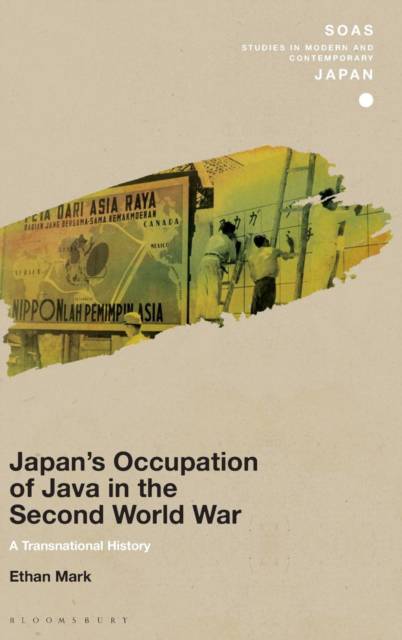
- Afhalen na 1 uur in een winkel met voorraad
- Gratis thuislevering in België vanaf € 30
- Ruim aanbod met 7 miljoen producten
- Afhalen na 1 uur in een winkel met voorraad
- Gratis thuislevering in België vanaf € 30
- Ruim aanbod met 7 miljoen producten
Zoeken
€ 322,45
+ 644 punten
Uitvoering
Omschrijving
Japan's Occupation of Java in the Second World War draws upon written and oral Japanese, Indonesian, Dutch and English-language sources to narrate the Japanese occupation of Java as a transnational intersection between two complex Asian societies, placing this narrative in a larger wartime context of domestic, regional, and global crisis.
Japan's occupation of Java is here revealed in a radically new and nuanced light, as an ambiguous encounter revolutionary in the degree of mutual interests that drew the two sides together, fascinating and tragic in its evolution, and profound in the legacies left behind. Mark structures his study around a diverse group of Japanese and Indonesians captivated by the wartime vision of a 'Greater Asia.' The book is not only the first transnational study of Japan's wartime occupation of Java, but the first to focus on the Second World War experience in transnational terms 'on the ground' anywhere in Asia. Breaking new ground interpretatively, thematically and narratively, Mark's monumental study is of vital significance for students and scholars of modern Asian and global history.Specificaties
Betrokkenen
- Auteur(s):
- Uitgeverij:
Inhoud
- Aantal bladzijden:
- 368
- Taal:
- Engels
- Reeks:
Eigenschappen
- Productcode (EAN):
- 9781350022201
- Verschijningsdatum:
- 12/07/2018
- Uitvoering:
- Hardcover
- Formaat:
- Genaaid
- Afmetingen:
- 157 mm x 236 mm
- Gewicht:
- 680 g

Alleen bij Standaard Boekhandel
+ 644 punten op je klantenkaart van Standaard Boekhandel
Beoordelingen
We publiceren alleen reviews die voldoen aan de voorwaarden voor reviews. Bekijk onze voorwaarden voor reviews.








